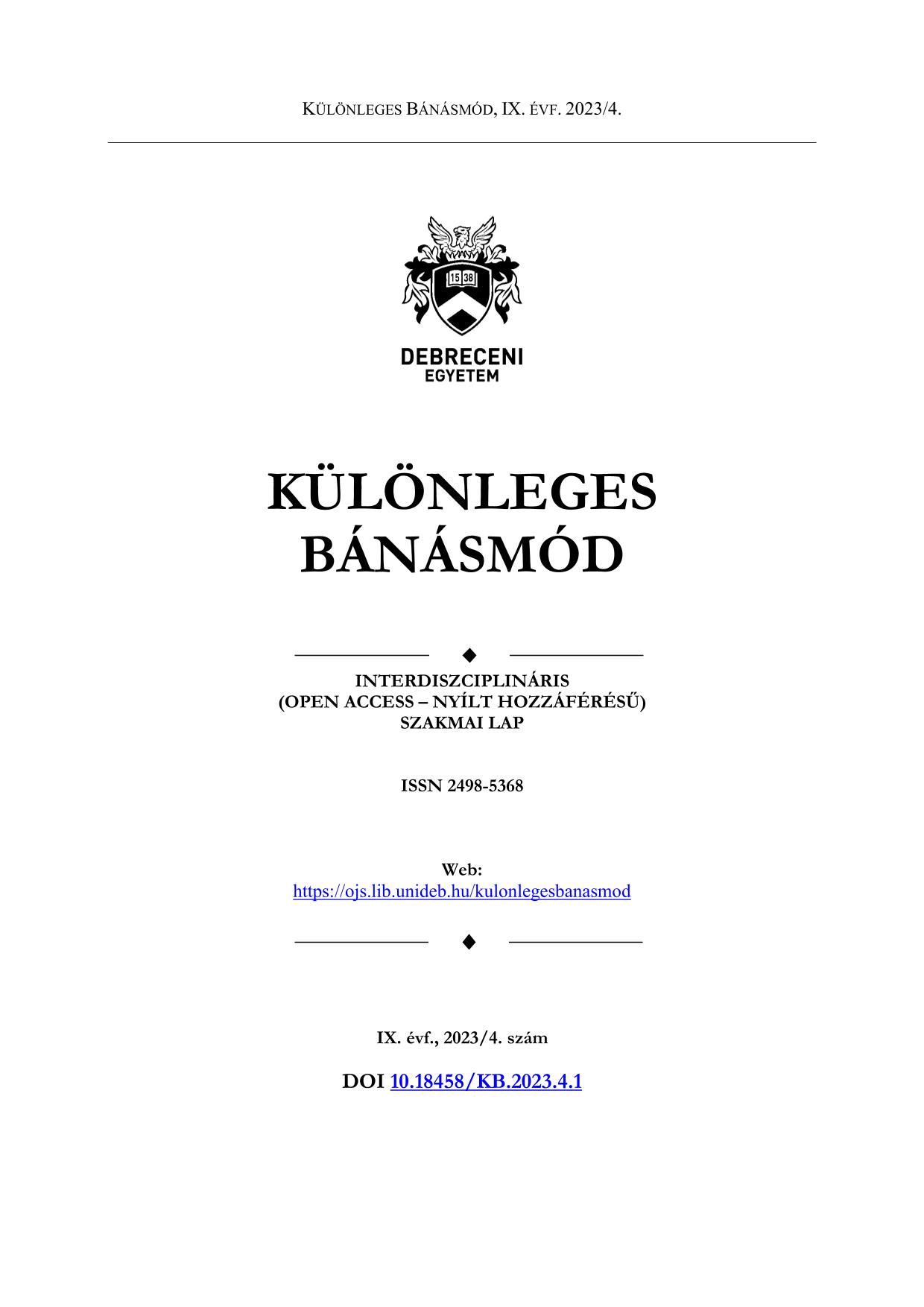GIPSY CHILDREN AT THE DEBRECEN FOOTBALL ACADEMY–RESULTS OF A QUALITATIVE STUDY
Author
View
Keywords
License
Copyright (c) 2024 Dr. Rábai Dávid

This work is licensed under a Creative Commons Attribution-NonCommercial-NoDerivatives 4.0 International License.
How To Cite
Abstract
One of the aims of the present study is to briefly outline the issues related to gipsy and sportsmen in the literature, and to interpret the main challenges and potential barriers that arise in this context (Bailey, 2005; Sütő-Gabóda, 2013; Kovács, 2016; Faragó and Konczosné, 2017). We also aim to review the most important contexts related to the social background of athletes and, more narrowly, football academics as a possible option for breakout opportunities, based on the football academy system that has been operating in Hungary since 2001 (Rábai, 2021), and to examine specifically how the Debrecen Football Academy can help young people of gipsy origin to break out. The focus of our study is qualitative research, during which we interviewed the leaders of the Debrecen Football Academy in order to get answers to our questions about the gipsy children in the academy. During the interviews, the interviewees provide an overview of the recruitment, social background and typical career paths of gipsy children who have attended the academy so far, as well as a general discussion of their situation and opportunities. Based on our results, the children studying and developing at the football academies have a stable social background, and the Debrecen Football Academy also offers scholarship-like support opportunities that can help children from lower social status in the institution receive significant support. Academy leaders emphasized during the interviews that, although gipsy children often drop out of education, they have a number of successful careers behind them, suggesting that they too have every opportunity to break through the academy. Interviewees also said that they do their best to support gipsy children so that no one is disadvantaged because of economic or social deprivation.


 https://doi.org/10.18458/KB.2023.4.39
https://doi.org/10.18458/KB.2023.4.39